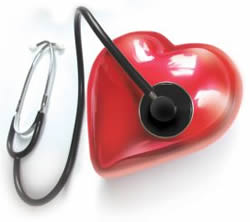
This is a Sponsored Post….
 Many common causes of heartburn include coffee, spicy food, and big meals. However, recurrent heartburn can be a sign of something more serious.
Many common causes of heartburn include coffee, spicy food, and big meals. However, recurrent heartburn can be a sign of something more serious.
Due to the pressure, your stomach may hold acid, which may enter your esophagus. A professional Piles, Fissure, Fistula, and Hernia Surgeon, can easily assist you and need to recommend them.
The majority of hernias develop in the lower abdomen around the genitalia. Swollen blood vessels in and around the rectum are piles, which can be uncomfortable or painful. The majority of hernias develop in the lower abdomen around the genitalia. Swollen blood vessels in and around the rectum are piles, which can be uncomfortable or painful. People frequently mistakenly think that hemorrhoids and anal fissures are the same things. Both disorders can cause discomfort and blood when you urinate. Anal fissures do not require surgery, which is excellent news. It can be handled at home. You can have heartburn, chest discomfort, gastroesophageal reflux disease, and even difficulty breathing. Additionally, the stomach’s acid content may lead to ulcers that bleed easily and result in either acute or chronic anemia (low blood counts).
Symptoms
Hernias of the hiatus, particularly Type I hernias, seldom result in symptoms. However, they could also be linked to the following symptoms: regurgitation into the esophagus, burping, heartburn, nausea, and vomiting. A late side effect of mesh treatment for incisional hernias, enterocutaneous fistula generally results from the mesh eroding the intestines.
More severe symptoms might be brought on by a paraesophageal hernia or a Type II, III, or IV herniae. These may consist of the following:
- Chest/abdominal discomfort
- Stomach bleeding (which can be indicated by blood in vomit, red or black stool, anemia, or blood test indicating loss of blood)
- Voice change Before-satiety (or becoming full after only eating a small amount of food)
- Intermittent difficulty swallowing (especially solid food)
- Breathing difficulties or shortness of breath following a meal
- Reflux of acid
- Gagging or the feeling that food is “sticking.”
Diagnosis
 Your surgeon may employ one or more diagnostic tests, a thorough examination, and a thorough medical history to decide on the best course of therapy.
Your surgeon may employ one or more diagnostic tests, a thorough examination, and a thorough medical history to decide on the best course of therapy.
- You need to ingest a little amount of contrast material, or liquid barium, to cover the lining of your esophagus so that X-ray pictures may be taken during a barium swallow/upper GI scan. This treatment might assist in identifying any esophageal narrowing if you have had difficulty swallowing. Strictures are the term for these regions.
- Chest X-rays, images of internal organs, bones, and tissues are created by electromagnetic radiation.
- CT scans, a series of pictures of the interior of your body, all obtained from different angles, are combined to display a great deal of information. You might be required to consume a special dye or inject it into a vein for your veins and organs to appear clearly in these scans.
- Upper Endoscopy (EGD), this technique involves inserting an endoscope into your esophagus through your mouth. With this surgery, your surgeon will be able to observe your upper digestive system, which is made up of your esophagus, stomach, duodenum, or the beginning of your small intestine. After that, your surgeon can also take a sample of tissue.
Treatments
Beyond routine monitoring and medication, in some instances, medical attention will be required. These ailments include recurring infections like pneumonia and other chronic conditions, chronic discomfort, gastric reflux disease problems, esophagitis complications, the danger of strangulation, and chronic anemia. For those with hernias, the following therapies are available.
- Minimally Invasive Hernia Repair
- Fundoplication
Conclusion
Although hernias are uncommon, it may be time to visit a gastroenterologist or piles specialist if you frequently get heartburn. To check for inflammation, your doctor may do various procedures, such as an upper digestive system x-ray or an upper endoscopy that looks into your stomach and esophagus.
